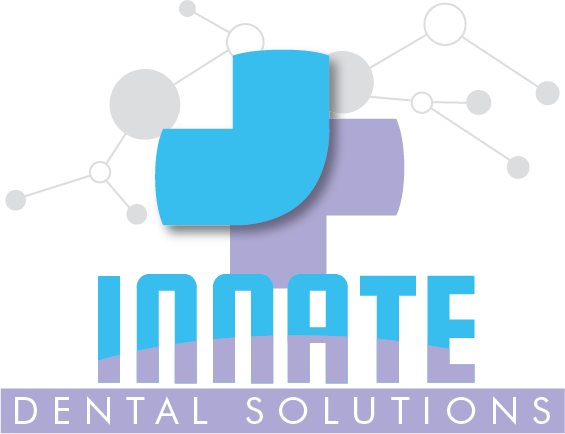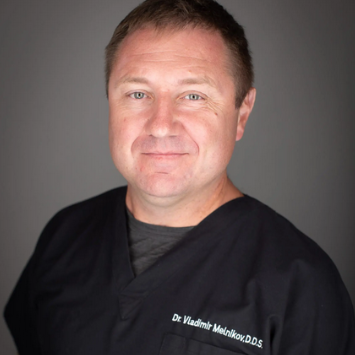Contact Information
Frontdesk@innatedentalsolutions.com
4708 W Plano Pkwy, Plano, TX 75093, United States of America
128 N Highway 77, Waxahachie, TX 75165
4708 W Plano Pkwy, STE 200, Plano, TX 75093
(972) 519-0990
INNATE DENTAL SOLUTIONS PLANO, TX
Cost of Dental Implants
Dental implants can cost between $3,000 and $36,000, depending on the complexity of the procedure. In this article, you’ll find a detailed breakdown of the cost of dental implants and factors that influence them, helping you understand what to expect.
Our Click to Call Us


Understanding Dental Implant Costs
The cost of dental implants can vary significantly based on several factors, including the type of implants needed and the specific characteristics of your mouth. Consider these costs as an investment in your long-term oral health rather than just an expense.
Opting for cheaper options might result in downsides like inferior materials and less experienced practitioners. Prioritizing quality over cost is advisable.
Average Cost of Single Dental Implants
The price for a single dental implant in the U.S. averages between $3,000 and $5,800. However, this dental implant cost can vary significantly from one location to another. For instance, the average cost in Texas can range from $1,000 to $3,000, with specific cities like Austin and Dallas having their own price ranges.
Full Mouth Dental Implants Cost Breakdown
For those needing more extensive work, the cost of full mouth dental implants can be substantial. Nationally, the range for a full mouth restoration is generally between $30,000 and $36,000. This procedure often involves multiple implants and advanced prosthetics, making it a significant investment. Full arch dental implants, such as All-On-4, can cost around $23,508 per arch. The overall expenses can be influenced by the type of materials used and any additional required procedures, such as bone grafting.
Patients undergoing full mouth dental implants benefit from restored function and aesthetics immediately after the procedure. However, without temporary same-day implants, they might face several months with posts protruding from their gums, which can be inconvenient.
Although the costs are high, the durability and longevity of dental implants make them a lifetime investment.
Additional Procedures and Their Costs
Additional procedures can significantly impact the total cost of dental implants. Necessary procedures like bone grafting, which can range from $1,500 to $4,000 per graft, may be required to ensure the success of the implants. Synthetic bone grafts are generally less expensive, ranging from $200 to $1,200.
Zygomatic implants, which eliminate the need for bone grafts and require only one surgery, can also help reduce overall costs.
Factors Affecting Dental Implant Prices
Several factors influence the cost of dental implants, including the quality of materials, the expertise of the provider, and the technology used. High prices do not always guarantee better quality, and lower costs do not necessarily imply inferior quality.
Being aware of these factors can help in making a more informed decision.
Materials Used in Dental Implants
The materials used in dental implants can significantly affect their cost. Common materials include:
- Zirconia, known for its durability and strength, is often more expensive than other materials.
- Porcelain, which closely resembles natural teeth, offers aesthetic benefits.
- Acrylic, which is more prone to breaking, provides a more affordable option but has its drawbacks.
Each material offers different benefits and price points.
Recent advancements in digital design and 3D milling have also improved the production of zirconia implants, enhancing their appeal.
Location and Provider Expertise
The location and expertise of the dental provider can also impact the cost of dental implants. Implants in certain locations, particularly the anterior region, require more precision and can therefore be more expensive. Choosing a provider with extensive experience and specialization in dental implants can result in higher costs but often ensures better outcomes.
Technology and Techniques
Advanced technology plays a crucial role in determining the costs of dental implants. Diagnostic imaging techniques such as X-rays and CT scans are essential for accurate planning and placement of implants. These technologies increase the precision of the implant procedure, reducing the risk of complications and enhancing overall outcomes. Advanced technology improves the accuracy and success rate of dental implants, which can justify the higher costs.
Variations in surgical techniques also affect the cost. Minimally invasive surgeries, which involve smaller incisions and less drilling, typically result in faster recovery and less pain for patients. These techniques, although potentially more expensive, can significantly improve the patient experience and the success of the implant procedure.
Financing and Insurance Options
While managing the costs of dental implants can be challenging, various financing options and insurance plans can help make this investment more affordable. Many dental practices offer financing plans with low or zero-interest rates, making it easier for patients to spread out payments over time.
Dental Insurance Coverage
Many dental insurance plans have started covering a portion of the costs for dental implants, although the extent of coverage varies by policy. Preparatory procedures, such as tooth extractions or gum disease therapy, can also affect the overall cost and insurance coverage.
It's crucial to thoroughly review your insurance policy to clearly understand what is covered and identify any potential out-of-pocket expenses you may incur.
Financing Plans and Payment Options
Financing plans offer another way to manage the cost of dental implants. Options like Proceed Finance, LendingClub, and CareCredit® allow patients to spread their payments over several years. Some dental clinics provide zero-interest financing plans for a specified period, making implants more accessible.
Additionally, FSAs and HSAs can be utilized to pay for dental implants with pre-tax dollars, further reducing the financial burden.
Benefits of Investing in Dental Implants
Investing in dental implants offers numerous benefits beyond just replacing missing teeth. While the upfront cost can be high, dental implants are considered a lifetime investment due to their durability and longevity.
They not only restore oral function but also enhance overall quality of life.
Improved Oral Health
Dental implants provide a secure and effective solution for tooth replacement methods, offering a better alternative to implant supported dentures and other tooth replacement methods that often lead to complications over time. They support proper chewing and digestion, which can lead to improved overall health.
By providing necessary stimulation to the jawbone, dental implants prevent deterioration and maintain facial structure and aesthetics, bolstering self-esteem and confidence.
Enhanced Functionality and Aesthetics
Dental implants are crafted to integrate seamlessly with your natural teeth, enhancing the appearance of your smile. They restore functionality by enabling individuals to chew and speak effectively, mimicking the performance of a natural tooth.
This enhanced functionality and aesthetics make dental implants a worthwhile investment for many patients.
How to Choose the Right Implant Dentist
Choosing the right implant dentist is crucial for achieving optimal results. Evaluating the credentials and experience of potential implant dentists can help ensure a successful dental implant experience.
Evaluating Credentials and Experience
The dentist’s qualifications can significantly influence the cost due to their level of training and experience. Membership in professional organizations, like the American Academy of Implant Dentistry, indicates a dentist’s commitment to ongoing education and ethical standards. Assessing the number of implant procedures the dentist performs each year and reviewing before-and-after photos of previous patients can also provide insights into their skill level.
What to Expect During the Dental Implant Procedure
Understanding what to expect during the dental implant procedure can help alleviate any anxiety and prepare you for the journey ahead. Advanced imaging technologies like CT scans are often used to enhance treatment planning, providing crucial 3D imaging for proper assessment.
Compared to traditional X-rays, this technology provides more detailed information about the jaw, aiding in better treatment decisions.
Initial Consultation and Planning
During the initial consultation, the dentist evaluates your overall oral health and medical history to determine your suitability for dental implants. This may involve various specialists to assess your dental condition and create a personalized treatment plan.
Based on this assessment, a customized treatment plan is developed, specifying the number and type of implants required.
Surgical Procedure and Recovery
The surgical procedure for placing dental implants typically begins with opening the gum to expose the bone, allowing the implant post to be embedded deep into the jaw. This procedure is generally performed under local anesthesia, with sedation options available for anxious patients. After the implant is placed, a temporary denture may be fitted to maintain appearance until the final tooth is attached.
Osseointegration, where the jawbone grows into the implant, is a critical phase that provides stability for the artificial tooth. This process takes several months, during which follow-up appointments are essential to monitor the integration.
The typical recovery time for dental implants is around two weeks, but complete healing can take four to six months. Bone healing after extraction may extend the overall timeline.
Summary
Investing in dental implants is a decision that involves careful consideration of costs, quality, and long-term benefits. From understanding the average costs and factors affecting prices to exploring financing options and choosing the right dentist, this guide has provided a comprehensive overview to help you navigate your options. Dental implants offer significant advantages in terms of oral health, functionality, and aesthetics, making them a worthwhile investment for many patients. By making an informed choice, you can restore your smile and improve your quality of life.
Schedule Your Dental Implant Surgery Today!
To schedule an appointment, complete the form on our contact page or give us a call at (972) 519-0990.
Get Your Free Dental
Implant Consult Package
Get your First Consultation, Panoramic X-Rays, & Treatment Plan with our head dentist for FREE to see if you qualify for implant treatment. Everything you need to get started transforming your smile. $397 Value. Please note, dental implants are NOT covered by Medicare or Medicaid.
Reserve Your Spot Today - Limited Availability Every Month
Other Services
Dental Implant Costs FAQ
Frequently Asked Questions About Dental Implant Costs
Got a question? We’re here to help.
-
What is the average cost of a single dental implant in the U.S.?
The average cost of a single dental implant in the U.S. typically ranges from $3,000 to $5,800, influenced by factors such as location and the dental practice.
-
How much do full mouth dental implants typically cost?
Full mouth dental implants typically cost between $30,000 and $36,000, influenced by factors such as additional procedures and material types. It's essential to consult with your dental professional for a personalized estimate.
-
Can dental insurance cover the cost of implants?
Dental insurance can cover some costs of dental implants, but the extent of coverage varies by policy and individual health circumstances. It's essential to check your specific plan for details.
-
Are there financing options available for dental implants?
Yes, there are financing options for dental implants, such as Proceed Finance, LendingClub, and CareCredit®, many of which provide zero-interest financing for a limited time. Consider these options to make your dental care more affordable.
-
What factors should I consider when choosing an implant dentist?
When selecting an implant dentist, prioritize their credentials, experience, the number of procedures they conduct yearly, and the availability of an in-house lab for efficient service. These factors will ensure you receive quality care and improved results.
OUR TEAM
Meet Our Expert Implantology Team
Get to know the dedicated professionals at Innate Dental Solutions, where unparalleled expertise in dental implant procedures ensures you're in the best hands for your smile restoration journey.
There are Plenty of Dentists in the Plano & Dallas Area,
So Why Choose Innate Dental Solutions?

We Work With All Major Insurance Providers

We Are Dental Implant Specialists

Cutting-Edge Implant Technology

2 Convenient Locations Serving Dallas
CONTACT US
Your Deserve a Beautiful Smile
Let Us Make It Happen
For more information about our services, or to get a free quote, complete the form below or give us a call at (972) 519-0990.

Contact Information
Get Your Free Dental
Implant Consult Package
Get your First Consultation, Panoramic X-Rays, & Treatment Plan with our head dentist for FREE to see if you qualify for implant treatment. Everything you need to get started transforming your smile. $397 Value. Please note, dental implants are NOT covered by Medicare or Medicaid.
Reserve Your Spot Today - Limited Availability Every Month
Our Services
Quick Links
Our Locations
Plano Location
4708 W Plano Pkwy, STE 200, Plano, TX 75093
Waxahachie Location
Innate Dental Solutions, 128 N Highway 77, Waxahachie, TX 75165
All Rights Reserved | Innate Dental Solutions







